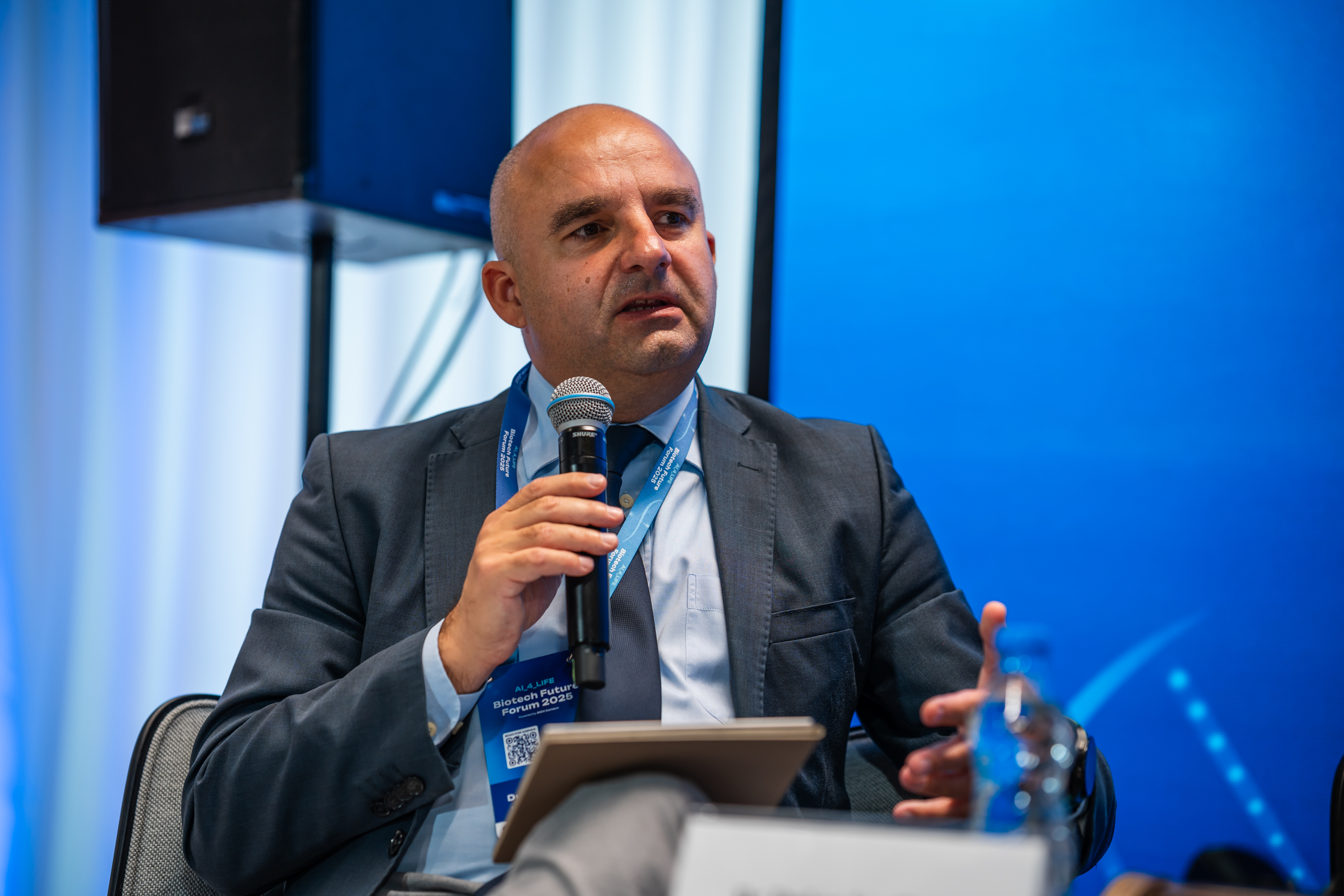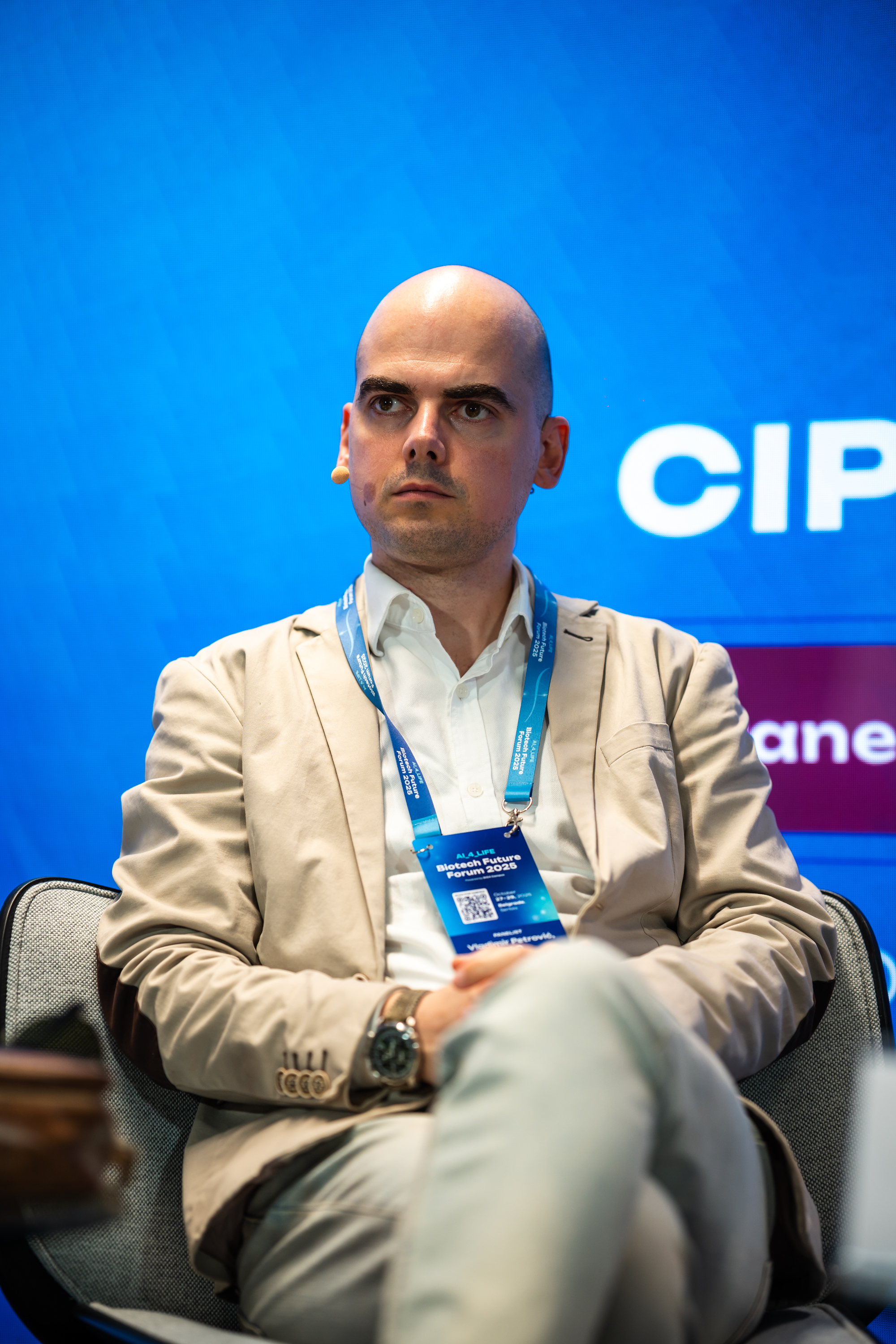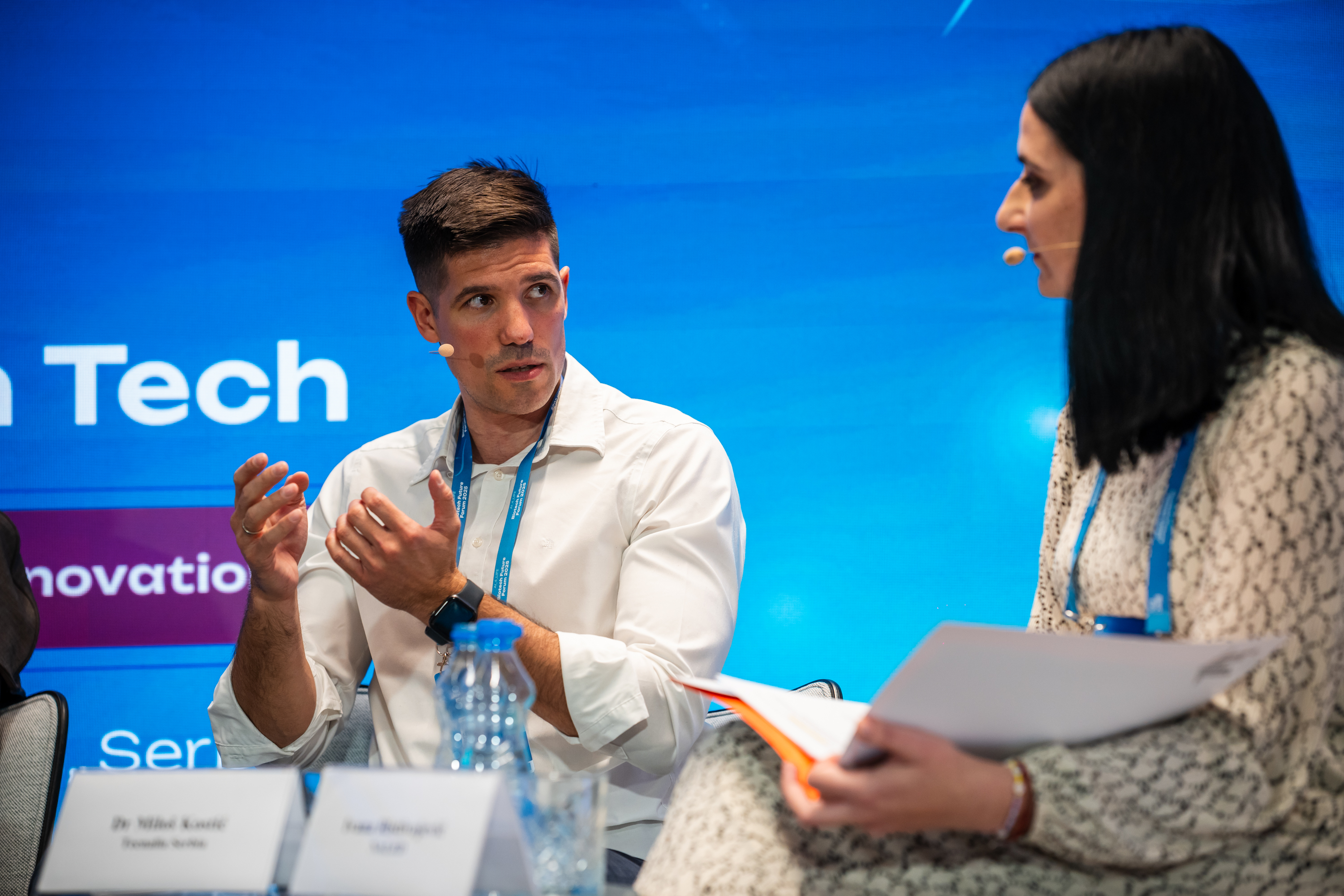CIPS Connect: How Digital Technologies and AI Are Opening Global Market Doors for Serbian Startups and Companies
How domestic companies and startups can harness the potential of digital technologies and artificial intelligence to position themselves in international markets was the central topic of the panel “CIPS Connect: Next-Gen Tech,” held within the Biotech Future Forum. The event was organized by the Government of the Republic of Serbia and the Centre for the Fourth Industrial Revolution, in cooperation with the Office for IT and eGovernment, the Ministry of Science, Technological Development and Innovation, NALED, the World Economic Forum, and the United Nations Development Programme (UNDP), with the support of the BIO4 Campus.
The panel was dedicated to presenting the Capital Innovation Point Serbia (CIPS) project — part of the European network of digital innovation hubs — as well as discussing how digital technologies and AI can contribute to the international positioning of Serbian companies and startups. The event brought together representatives of science and technology parks, research institutions, and the business sector, with the goal of accelerating the digital transformation of small and medium-sized enterprises and startups. It also served as an excellent opportunity for networking and experience exchange within the innovation ecosystem. Participants discussed cooperation models between science and industry, opportunities offered by European projects and grants, and ways to foster innovation and strengthen the competitiveness of Serbia’s technology sector.
“Our researchers and innovative companies face greater challenges than their European counterparts — even a delay of a few days in importing materials can determine market success. The lack of venture capital and ‘business angel’ support further complicates development, despite government investments in innovation. It is essential to improve private sector financial support and streamline administrative procedures so that our innovators can compete globally,” said Dušan Vasiljević, PhD, Director of the Competitiveness and Investment Department at NALED.
The Director of the Science and Technology Park Belgrade, Marija Milić, PhD, emphasized that artificial intelligence has become a key driver of economic development in Europe, and that Serbia must follow this trend by strengthening regulation and supporting innovative companies.
“Recent data show that 43% of companies already use AI, which is an increase of about 10% compared to last year, and it is estimated that by 2030 nearly every company in Europe will use these technologies. This clearly shows that Serbia must do more to understand both the advantages and challenges of AI implementation, as well as to develop regulation that will not hinder innovation. Our advantage lies in our highly qualified experts, which is why we believe it is vital to support small businesses and startups that offer solutions for both domestic and global markets,” explained Milić.
Vladimir Todorović, PhD, Innovation and Project Development Coordinator at the Science and Technology Park Novi Sad, gave the example of South Korea, which achieved great success in this field through systematic work.
“The key word is collaboration: universities, institutes, industry, startups, and investors must be connected, with government support. Only through such integration of science and industry can we ensure that innovations truly reach the market. CIPS is an example of this — an international project that will support 130 companies, allowing participants to test their models and use state-of-the-art technology,” said Todorović.
Vladimir Petrović, PhD, Research Associate at the Institute of Physics in Belgrade, highlighted the importance of connecting research institutions with the business sector and increasing investments in science and research.
“According to Eurostat data, Serbia’s investment level in science and research remains below the European average. Although there has been a growth trend in public investment over recent years, that growth needs to accelerate to catch up with developed countries. What remains a weak point is private sector investment — both through partnerships with research institutions and through their own R&D activities — as well as the lack of direct collaboration between science and industry. This requires particular attention in the coming period through systemic solutions,” said Petrović.
Speaking about the importance of applied research, Miloš Kostić, PhD, Project Manager at Tecnalia Serbia, emphasized that competitiveness is built by combining knowledge and practical application, with a focus on innovation.
“To catch up with other European countries, we need significantly higher public investment in innovation. Across the region, the Innovation Fund of Serbia is seen as an example of good practice. We should build on this and double the Fund’s size in every cycle until we reach a critical mass of successful examples that will attract private investment. Unfortunately, the opposite trend is happening, and we must reverse it,” said Kostić.
The CIPS project, co-financed by the European Union, is implemented by a consortium led by the Science and Technology Park Belgrade as the project coordinator, together with partners — NALED, the Science and Technology Park Novi Sad, Data Cloud Technology, and the Faculty of Technical Sciences in Novi Sad, with the Faculty of Electrical Engineering in Belgrade and the Institute of Physics as associated partners.








